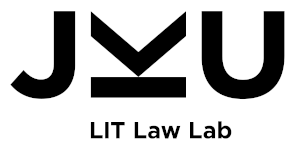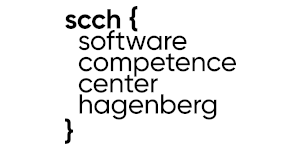Can machines think? Can you distinguish humans from AI? Let’s play the Turing Game!
Can machines think? Alan Turing’s decades-old question and his famous Turing Test has triggered a new and controversial discussion following the emergence of ChatGPT and other Large Language Models. When do we start to perceive an AI bot as equal to or even more human than other people? Are you able to distinguish an AI bot from a human, just by chatting with both? In the Turing Game two people play against a machine and have to identify the AI bot together. Only humans who collaborate cleverly can win.
Are ChatGPT and other current Large Language Models already able to pass the Turing Test? In The Turing Game, two humans and a machine meet in a text chat without knowing the identities of their counterparts. The humans must work together to recognize the respective other human and distinguish them from the AI that masquerades as a human. If the machine succeeds in convincing at least one of the two humans that itself is human and the other human is a machine, the machine wins the Turing Test and the humans lose.
The artistic installation provides current research findings on the Turing Test and related technical and philosophical considerations about intelligence and consciousness, as well as ethics and morality. The impact of the game on the certification and safety of AI is highlighted. The visitors can demonstrate their Turing Test skills and directly play the game. The online platform at www.turinggame.ai is accessible worldwide and invites players to sample additional games and beat the AI.
Bios
-
 Photo: Hermann Burgstaller
Photo: Hermann BurgstallerBernhard Nessler
AT
DI Dr. Bernhard Nessler is Research Manager for Intelligent Systems and Certification of AI at Software Competence Center Hagenberg and lecturer at the Institute for ML at Johannes Kepler University Linz. He is also a founding member of ELLIS (ellis.eu) and vice-president of the Austrian Society for Artificial Intelligence (ASAI). He received his PhD in Computational Neuroscience in 2014 from the Technische Universität Graz, where he also held a post-doctoral position in ML/AI with Prof. Sepp Hochreiter. His current research focuses on the connection between technical intelligence and the human mind.
-
 Photo: Marco Zloudik
Photo: Marco ZloudikGregor Aichinger
AT
Mag. iur. Gregor Aichinger is a research assistant and doctoral candidate at the LIT Law Lab, Johannes Kepler University Linz. He also works as a Legal Researcher in Intelligent Systems and Certification of AI at the Software Competence Center Hagenberg (SCCH). His research focuses on the legal and social dimensions of technological developments and their interdisciplinary study research, in particular with regard to the right to information-related self-determination, AI and robotics.
-
 Photo: Katharina Leitner
Photo: Katharina LeitnerKatharina Leitner
AT
Katharina Leitner, who hails from Upper Austria, completed an MA in industrial design in Graz. She now works as a lighting designer in the emergency lighting sector. Additionally, she runs an advertising agency that offers product design, graphic design, and visualization services. Her career has taken her to Germany and Denmark. Her passion lies in giving products form, function, and aesthetics.
-
Technical and Legal Research Team JKU/SCCH
AT/PL/CH
Simon Schmid, MSc (SCCH/JKU), Patrick Mederitsch, MSc (SCCH/JKU), Mag. Alexander Aufreiter (SCCH/JKU), Rudolf George Albu, BSc (JKU), Dr. Michael Alexander (SCCH/JKU), Felix Nessler (JKU), Severin Bergsmann (SCCH/JKU), Michal Lewandowski, MSc (SCCH), Mag. Cornelia Eisenberg (JKU), Viktor Szolga (JKU), Tobias Halmdienst (JKU), Markus Essl (JKU) and Ahmed Soror (JKU).
Credits
Lead and Scientific Supervision: Bernhard Nessler (SCCH/JKU) / Co-Lead and Legal Advisory: Gregor Aichinger (JKU/SCCH) / Installation and Design: Katharina Leitner (Linz)
Technical and Legal Research Team: Simon Schmid (SCCH), Patrick Mederitsch (SCCH), Alexander Aufreiter (SCCH/JKU), Michael Alexander (SCCH/JKU), Felix Nessler (JKU), Severin Bergsmann (SCCH/JKU), Michal Lewandowski (SCCH), Rudolf Albu (JKU), Cornelia Eisenberg (JKU), Viktor Szolga (JKU), Tobias Halmdienst (JKU), Markus Essl (JKU), Ahmed Soror (JKU) / Media partner: Bacon & Bold, Linz/Wien
This project is supported by the State of Upper Austria.
The project and the interdisciplinary research of the SCCH, the LIT Law Lab and the JKU ML Institute was founded by the Linz Institute of Technology (LIT) of the JKU, by the business and research strategy #upperVISION2030 of the country Upper Austria in the project AI Engineering and Certification Center and by the collaboration with TÜV AUSTRIA and the joint venture TRUSTIFAI in the CERT project.










